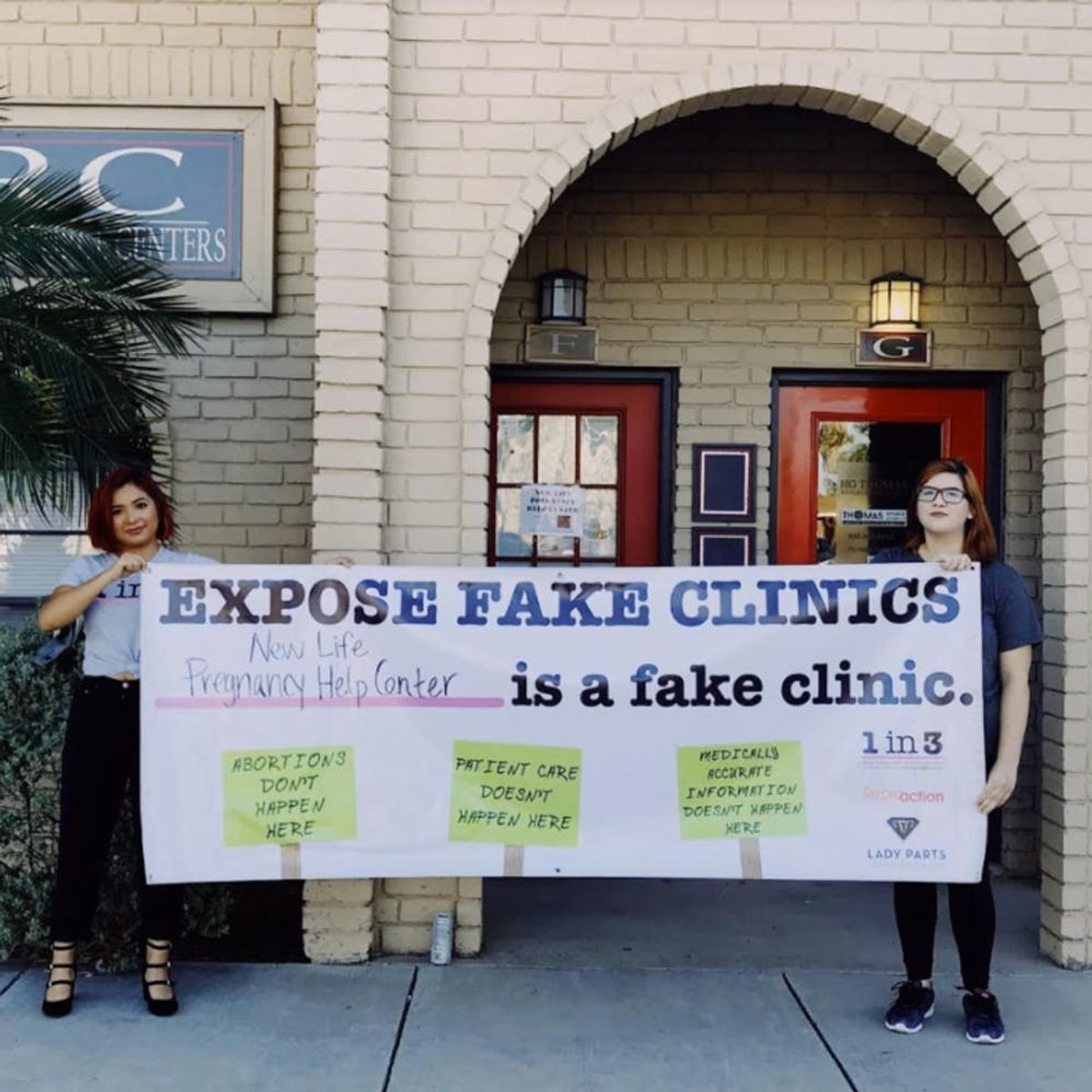CDCs are religious centers that try to prevent abortion by misleading women, and activists are spreading the word.
This College Student Is on a Mission to Expose Fake Clinics in Her South Texas Community

Crisis pregnancy centers, or CPCs, are religious centers that pose as clinics in order to convince people not to have an abortion. These fake clinics undermine women’s health care decisionmaking, and reproductive choice advocates like 22-year-old Ofelia Alonso are working hard to expose them.
Alonso, a student at the University of Texas-Rio Grande Valley, works with Advocates for Youth to help draw attention to the CPCs operating in her south Texas community. Until recently, the Rio Grande Valley had no abortion clinics; now they have one, Whole Woman’s Health in McAllen, Texas. The region has four CPCs.
“At the end of the day, not only are CPCs not-real medical establishments that lie to people, they also use their centers as a front for anti-abortion organizing,” Alonso tells Brit + Co.

CPCs vastly outnumber abortion clinics across the nation. According to the Supreme Court filing for NIFLA v. Becerra, there are an estimated 2,500 and 4,000 crisis pregnancy centers in the US. Comparatively, the US had just 788 abortion clinics as of 2014, according to the Guttmacher Institute.
CPCs will often establish their centers in close proximity to actual abortion clinics as a strategy to lead patients into their facilities, instead. And, often, they bear a superficial resemblance to clinics; most provide pregnancy testing and many also offer ultrasounds. They might help pregnant women sign up for programs like Medicaid to cover the medical costs of pregnancy or connect women to adoption resources if they know they aren’t able to keep their baby. In the process, workers at crisis pregnancy centers dole out misleading and factually inaccurate ideas about abortion.

Some of the common lies that CPC workers tell about abortion is that having an abortion means a person will be unable to get pregnant later on, and that abortion leaves women emotionally traumatized. Of course, there’s no medical evidence to support either of these false claims. But that doesn’t stop CPCs from giving bad information to vulnerable people, especially in marginalized communities.
According to a 2015 report from NARAL Pro-Choice America, “CPCs purposely place their outdoor advertising near high schools, colleges, and low-income neighborhoods.”
In some instances, CPCs explicitly target predominantly Black communities. Care Net, a network of CPCs, has purchased ads on BET, and creates ads targeting Black communities that compare abortion to slavery, according to the report.
To combat the dangerous and insidious operation of crisis pregnancy centers in south Texas, Alonso worked on the 1 in 3 campaign, a week-long effort to expose CPCs that launched in October of last year. During the campaign, Alonso says she and her fellow volunteers gave presentations and set up tables on college campuses.
“It was very obvious that people didn’t know CPCs aren’t real clinics, which is part of the danger. They’re seen as a legitimate medical establishment and people trust them as a legitimate medical establishment,” Alonso says.

In addition to educating the public about the existence and dangers of CPCs, Alonso and others staged a protest at two of the centers in the Rio Grande Valley. Alonso tells us that one of the centers they protested in McAllen is notorious for harassing patients outside the Valley’s one abortion clinic.
Since the campaign, Alonso tells us that she and others with Advocates for Youth have continued to table at colleges and speak out about CPCs. Now that the practices CPCs are being considered by the Supreme Court, Alonso says that there’s been even more opportunity to talk about how these organizations deceive and potentially endanger patients.
A decision on the case is expected by summer.
What do you think? Tell us on Twitter @BritandCo.
(Images via URGE UTRGV/ Facebook)


















